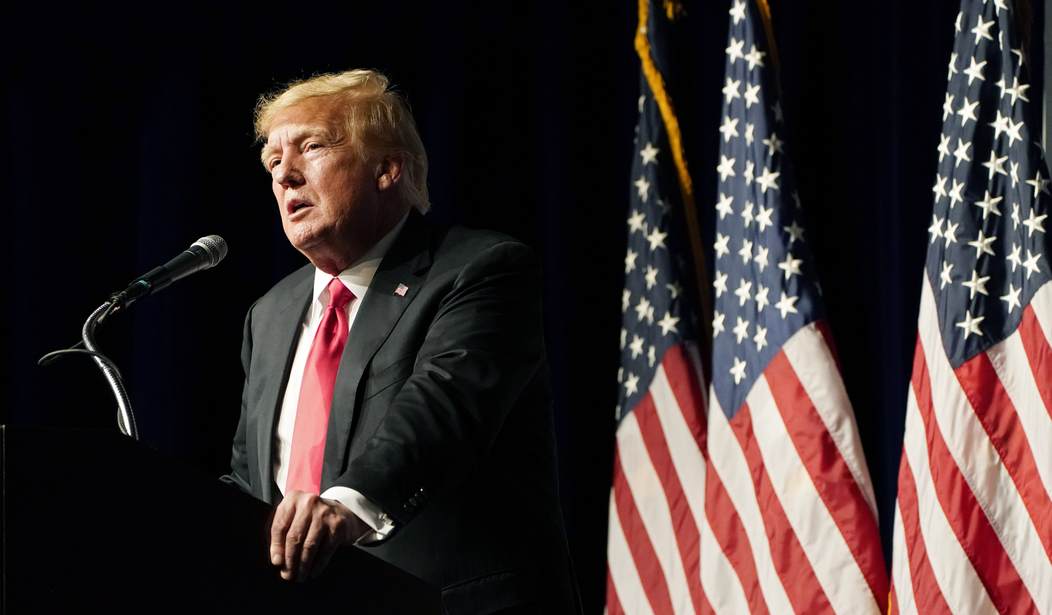In an editorial called "Trump's Silence on Jan 6 Is Damning," the New York Post wrote: "His only focus was to find any means -- damn the consequences -- to block the peaceful transfer of power. There is no other explanation, just as there is no defense, for his refusal to stop the violence. It's up to the Justice Department to decide if this is a crime. But as a matter of principle, as a matter of character, Trump has proven himself unworthy to be this country's chief executive again."
I disagree.
Former President Donald Trump felt robbed, understandably so. NPR's Domenico Montanaro said, "Just 44,000 votes in Georgia, Arizona and Wisconsin separated Biden and Trump from a tie in the Electoral College."
Let's look at just three states. The Michigan secretary of state used COVID-19 as an excuse to send a mail-in ballot application to every registered voter, whether or not the voter requested one. True, Trump lost the lawsuit against Michigan when the Michigan Supreme Court refused to take up the case, leaving the Michigan Court of Appeals ruling in place. But in that 2-1 ruling on procedural grounds, Judge Patrick Meter dissented, arguing that the "issues are not moot because state electors have not yet been seated, the Electoral College has not yet been assembled, and Congress has not yet convened."
In Pennsylvania, numerous rules and regulations were violated, including allowing election officials to accept some ballots received after Election Day. Two prominent liberal professors, Harvard emeritus Alan Dershowitz and George Washington University's Jonathan Turley, suggested that Trump's lawsuit against the state had merit. About Pennsylvania's acceptance of ballots after election day, Dershowitz said, "The Constitution doesn't permit anybody in the state but the legislature to make decisions about elections." Turley wrote: "Pennsylvania remains a rich environment for challenges. Judicial changes ordered to the state law have raised fierce objections. ... The issues in Pennsylvania may involve mailed ballots without postmarks and the rejection of those with signature mismatches. There are lawsuits over officials 'curing' defective ballots and letting ineligible voters fill out ballots, actions that could knock out small pockets which could change the results."
Recommended
The Wisconsin Supreme Court, also on procedural grounds, ruled against Trump 4-3. But the chief justice of that court, in a dissent, argued among other things that the use of drop boxes violated the law. Chief Justice Patience Roggensack wrote, "The WEC (Wisconsin Election Commission) ignores that the legislature provided only one act an election official may take in regard to a defective witness address: mail the defective ballot back to the elector to correct the error."
Indeed, in July 2022, the Wisconsin Supreme Court, in a 4-3 decision, disallowed the use of drop boxes, except those placed at election offices where only the actual voter could drop off their own ballot.
As to fomenting an "insurrection," Kash Patel, chief of staff for the acting Secretary of Defense said that on Jan. 4, "Mr. Trump unequivocally authorized up to 20,000 National Guardsmen and women for us to utilize should the second part of the law, the request, come in. But those requests never did." Patel says he testified under oath to the Jan. 6 committee that he was in the room when Trump made this authorization.
What part of "peacefully and patriotically make your voices heard" -- as Trump said in his Jan. 6 speech -- do the Jan. 6 committee members not understand? Yes, the speech ended with, "We fight like hell. And if you don't fight like hell, you're not going to have a country anymore." But politicians have long used rhetoric like "We're going to fight," or "We're going to take back America," or "This is war."
Trump made unsuccessful legal arguments against the certification of the election, as did congressional Democrats following the presidential elections of 2000, 2004 and 2016. But when they did so, the media did not characterize them as "undermining our democracy."
Larry Elder is a best-selling author and nationally syndicated radio talk-show host. To find out more about Larry Elder, or become an "Elderado," visit www.LarryElder.com. Follow Larry on Twitter @larryelder. To read features by other Creators Syndicate writers and cartoonists, visit the Creators Syndicate webpage at www.creators.com.























Join the conversation as a VIP Member